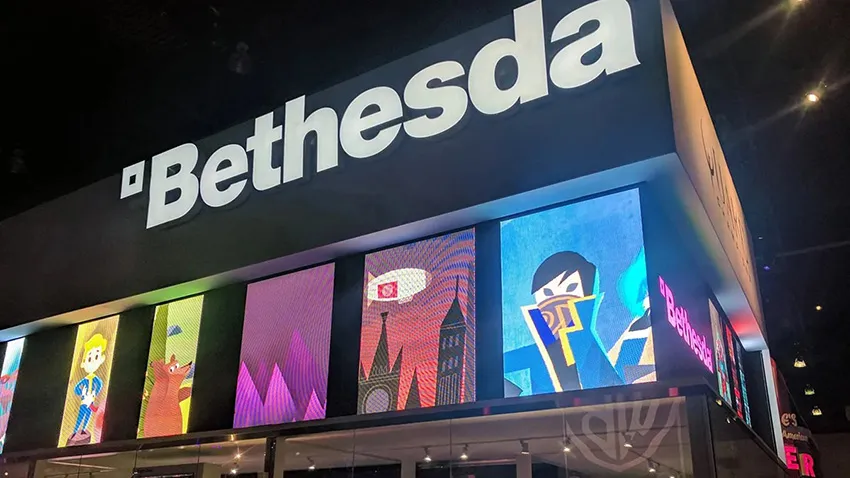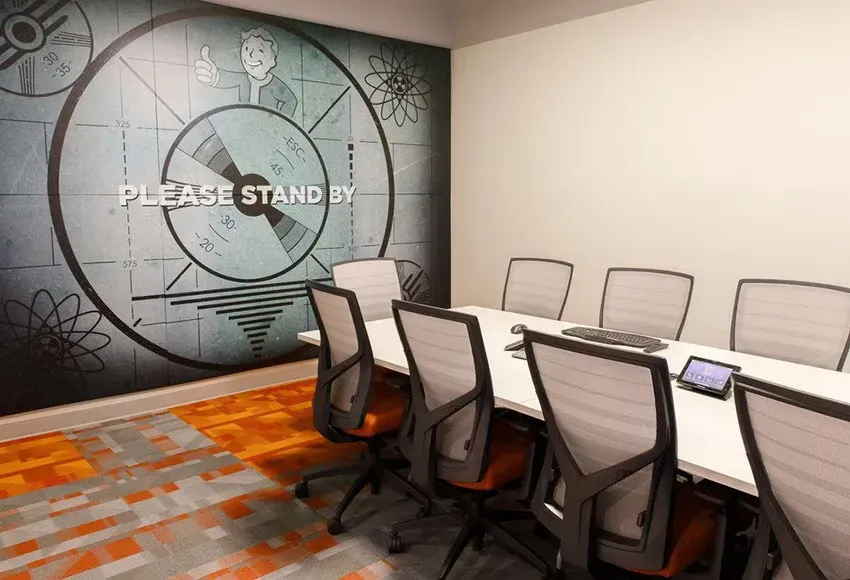A former employee of video game industry giant Bethesda Softworks and ZeniMax Online Studios is suing the companies after accusing them of transphobic behavior in the workplace, and of holding her healthcare "hostage" after she took her complaints to Human Resources.
Leona Faren, who worked as a media artist for Elder Scrolls Online from 2018 to 2022, posted a four-hour video on YouTube this month, giving a detailed account of her experience at the companies. The video includes audio recordings of meetings with her boss and various screenshots.
Faren alleges that her boss (whom Faren referred to as "Elphaba" for anonymity) unceremoniously outed her in a company meeting, didn't understand why that was a problem, and then failed to apologize.
She also claims that her boss began treating her unfairly in other ways, such as during employee evaluations, when there were concerns expressed about her "velocity" and work output in general – both of which were more than acceptable, Faren said, but intentionally warped to "push [her] out."
"She was unfairly judging my velocity to make my numbers look bad and get rid of me," Faren said of her boss. "And she wasn't letting me transfer to another team, because she was worried that whoever I worked under at that point wouldn't get rid of me, and she'd have to continue working with a Trans girl."
In one of the recordings, after hearing that Faren would need medical leave under the Family and Medical Leave Act (FMLA), "Elphaba" suggests that Faren might be demoted from midlevel to associate, and that she might be under stricter work expectations going forward.
Faren also claims she faced issues with the company's workflow tools, which allegedly delayed changing her portrait, reverted her profile to her deadname, and in some cases locked her out of certain systems due to her name change.
In 2021, Faren finally transferred to another team, where she says she flourished because she "was working for someone who didn't care [that she] was Trans." Early in 2022, however, the company put Faren under a "performance improvement plan" after her former boss "was allowed by corporate to do [her] yearly review."
"She gave me straight ones," Faren said. "Across the board."
Also in 2022, she claims, HR approached her and offered to pay for her gender-affirming surgeries, so long as she resigned and released the company from any potential discrimination lawsuit.
She took the deal, but it hasn't stopped her from sharing her story on YouTube, and court documents show that she is pursuing some kind of legal action against ZeniMax anyway. The company's deadline for gathering a response is today, July 28.
The company has been silent about the issue so far.
The Seattle context
Say what you will about whether video games discourse should be taken seriously. It won't change the fact that they're an ever more popular pastime, not to mention one deeply entangled with the story of Seattle.
Worldwide, video games generated $220 billion in 2022, about $28 billion of which was generated by Microsoft, Nintendo, Valve, Bungie, and other game studios with a strong presence here. According to the Pocket Gamer website, that makes Seattle the number one city in the US for video games revenue. ZeniMax is based in Rockville, Maryland.
Faren isn't the first Trans person in the industry to come forward with a story like this. Gaming is a disproportionately Queer pastime, with a 2020 Nielsen 360 survey finding that 10% of gamers identify as LGBTQ, compared to the 7% or so of the general population. It stands to reason, then, that plenty of Queer people are in the games industry. Despite this, it has a rocky history with minorities in general.
Local game company Bungie made the news in 2021, after the website IGN published an expose on its history of a toxic work culture dominated by straight white men with big egos. The article also discussed the company's more recent initiatives to improve diversity and foster a healthier workplace.
Earlier that same year, the state of California had filed a lawsuit against Activision Blizzard for workplace discrimination, sexual harassment, unequal pay, and other complaints. So far Blizzard has settled many of the suits for anywhere between $10 million and $35 million each.

It's worth mentioning that there's money to be made criticizing "top dog" companies like Bethesda, but the barrel of that cannon is usually aimed at the games themselves – their shoddy state on release, the way they're designed, their monetization schemes, and often the quality of the writing in them.
Right now, many gaming news outlets are holding their breath for the release of Starfield, yet another Bethesda game with lofty promises to break. We should be watching Bethesda and other big studios carefully, but not just for the quality of their products. We should be asking how the people making them are being treated.


